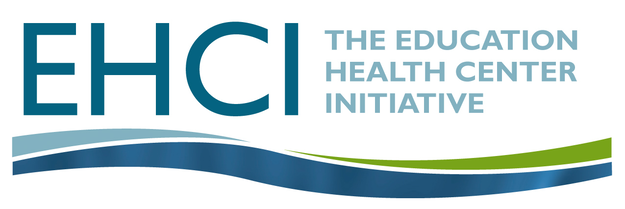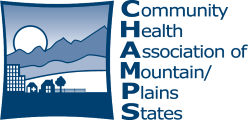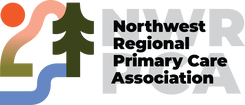EHCI has years of experience helping Community Health Centers develop residency programs in partnership with area teaching hospitals.
The Education Health Center Initiative (EHCI) provides consulting services, educational materials, and information about developing relationships between health centers and residency programs. The EHCI partnership has conducted research, developed informational resources, and sponsored trainings at both the regional and national levels on the Education Health Center model.
EHCI is a partnership of NWRPCA and CHAMPS, the two regional primary care associations serving Community Health Centers in Regions X and VIII, respectively.
EHCI is a partnership of NWRPCA and CHAMPS, the two regional primary care associations serving Community Health Centers in Regions X and VIII, respectively.
We can help you achieve your goals with innovative workforce solutions.
EHCI offers consulting services to Community Health Centers for a range of health professions and primary care disciplines, including residency programs in:
To get started, take a 10-minute survey to help our EHCI consultants better understand your health center’s needs. Upon completion of the survey, an EHCI representative will reach out to you for a complimentary one-hour conversation to determine the best approach to establish a residency program at your health center.
- Family Medicine
- Internal Medicine
- Psychiatry
- And more
To get started, take a 10-minute survey to help our EHCI consultants better understand your health center’s needs. Upon completion of the survey, an EHCI representative will reach out to you for a complimentary one-hour conversation to determine the best approach to establish a residency program at your health center.
Mission
EHCI's mission is to develop training and workforce solutions for the provision of quality primary care to underserved populations through support and transformation of primary care health workforce training partnerships.
Areas of focus:
Areas of focus:
- FQHC-residency training partnerships
- Consultation services
- Health workforce research
- Policy solutions for primary care training
Challenge
Health centers and the specialty of family medicine share the vision of breaking down barriers to access so that every American has a patient-centered medical home. Unfortunately, in addition to their common values of service, health centers and residencies also share the burden of a health workforce crisis. As a result of decreased interest in primary care, the recent expansion in numbers of health centers and a chronic problem of recruitment and retention of health care providers to underserved areas, there is a shortage of Family Physicians within health centers. The current health workforce crisis threatens the safety net system and the vulnerable population it serves. The crisis in primary care and a lack of secure funding threaten the survival of family medicine residency programs. New models of training primary care physicians in health centers are necessary to assure adequate health workforce to staff our nation’s safety net clinics.
Response
Since 2007 the EHCI partners have worked together to address this issue. The Education Health Center Initiative has produced a foundation of qualitative and quantitative evaluation of residency training in health centers, forged a coalition of health center and residency representatives throughout a ten-state region, and has made significant contributions toward the model of training primary care physicians in the health care safety net.
EHCI principals have published papers that demonstrate that training family physicians in health centers helps meet the health workforce needs of the underserved by enhancing the recruitment of family physicians to such centers. Specifically, the research has shown that physicians who are trained in health centers are twice as likely to work in underserved settings and four times more likely to work in health centers after completing their residency. However, qualitative assessments reveal that the affiliation between health centers and primary care residency programs is hindered by financial, administrative and governance barriers, evidenced by University of Washington Department of Family Medicine’s national survey of all Family Medicine Residencies in the US, which demonstrated that only 9% of residents are trained in federally-qualified health centers.
Considerable interest in the EHC model has been generated by the THCGME provisions in the Affordable Care Act, as well as the perception by many that this is an idea whose “time has come”. Because of the considerable complexity and barriers that accompany the creation of an Education Health Center, in 2011 EHCI began offering a full complement of consulting services which augment and customize the essentials that are presented in its toolkit.
EHCI principals have published papers that demonstrate that training family physicians in health centers helps meet the health workforce needs of the underserved by enhancing the recruitment of family physicians to such centers. Specifically, the research has shown that physicians who are trained in health centers are twice as likely to work in underserved settings and four times more likely to work in health centers after completing their residency. However, qualitative assessments reveal that the affiliation between health centers and primary care residency programs is hindered by financial, administrative and governance barriers, evidenced by University of Washington Department of Family Medicine’s national survey of all Family Medicine Residencies in the US, which demonstrated that only 9% of residents are trained in federally-qualified health centers.
Considerable interest in the EHC model has been generated by the THCGME provisions in the Affordable Care Act, as well as the perception by many that this is an idea whose “time has come”. Because of the considerable complexity and barriers that accompany the creation of an Education Health Center, in 2011 EHCI began offering a full complement of consulting services which augment and customize the essentials that are presented in its toolkit.
Objectives
Continue to identify existing resources and develop new resources as required to promote effective health center-family medicine residency affiliation.
Provide trainings/workshops
Conduct relevant research. A national survey of all FMRs in the US regarding their affiliation with health centers. The data tells us that there is a cohort of approximately 32 residencies that are fully affiliated with health centers. This represents 9% of residencies nationally. This is unchanged from previous estimates 15 years ago; apparently, while training residents in health centers remains a sound practice, it has not resulted in increased affiliation. This finding demonstrates a large potential for improvement and an argument for continued work on trying to remove the barriers to health center-family medicine residency training around mission, governance, administration, and financing.
Seek funding for on-going Project work, with NWRPCA serving as the fiscal sponsor for the Project.
Offer consultation services to organizations that are interested in establishing an EHC, either through the THCGME legislation or by other means.
Provide trainings/workshops
- The partners have conducted one or two-day workshops at the federal Regions VIII and X Fall Primary Care Conference held in Denver in 2008 and 2010, hosted by CHAMPS and NWRPCA. The trainings provide an intensive workshop on the legal, financial, clinical, and operational issues involved in health center-family medicine residency affiliation.
- EHCI conducts periodic webinars which discuss various aspects of establishing an Education Health Center. Email [email protected] to be added to a notification list about EHCI webinars.
Conduct relevant research. A national survey of all FMRs in the US regarding their affiliation with health centers. The data tells us that there is a cohort of approximately 32 residencies that are fully affiliated with health centers. This represents 9% of residencies nationally. This is unchanged from previous estimates 15 years ago; apparently, while training residents in health centers remains a sound practice, it has not resulted in increased affiliation. This finding demonstrates a large potential for improvement and an argument for continued work on trying to remove the barriers to health center-family medicine residency training around mission, governance, administration, and financing.
Seek funding for on-going Project work, with NWRPCA serving as the fiscal sponsor for the Project.
Offer consultation services to organizations that are interested in establishing an EHC, either through the THCGME legislation or by other means.
Solutions
Goals
To develop training and workforce solutions for the provision of quality primary care to underserved populations through support and transformation of primary health care workforce partnerships.
The Solution
One approach is to create an expanded Education Health Center. Such a center must have:
- A single governance structure to support the mission of service and education.
- A 51% user board consistent with the PHS 330 regulations.
- One CEO, responsible to the board, who oversees all operations and is responsible for the education and service missions.
- The respective institutional requirements of underserved community-based service and family medicine educational training, though specific location and performance measures may need to be adjusted or waived.
Education Health Center Benefits
- Medicaid and Medicare reimbursement based on 100% of allowable costs and the Medicare cost principles.
- Additional reimbursement for educational expenses. Cost reports will allow for cost-based accounting of educational expenses.
- Additional loan repayment and increased salaries for Residents and providers.
- Access to Federal Tort Claims Act malpractice coverage that extends to faculty and residents at all training sites.
- Eligibility to be institutional sponsors for Graduate Medical Education (GME) and can receive GME payments (Direct and Indirect Medical Education payments).
- Funding for the startup costs of residency program accreditation.
Consulting Services
Feasibility Analysis
EHCI Consultants can work with you to:
Technical Assistance
No two CHCs have exactly the same needs, resources, or challenges. This is not a one-size-fits-all approach, but a tailored consultation that works with your unique assets and challenges.
EHCI Consultants can work with you to:
Trainings
EHCI Consultants can work with you to develop a unique 1-to-2 day training that suits your graduate medical education interests.
We can:
EHCI Consultants can work with you to:
- Assess organizational capacity, strength, and weakness.
- Identify and quantify resources that the program would bring to the community to optimize sustainability.
- Develop high-level strategy and action steps.
- Define scope and function of the program of services.
- Identify type and number of staff and other resources required to support the projected program.
- Define the most effective operational model to maximize available resources.
Technical Assistance
No two CHCs have exactly the same needs, resources, or challenges. This is not a one-size-fits-all approach, but a tailored consultation that works with your unique assets and challenges.
EHCI Consultants can work with you to:
- Tailor a Business Plan to your organization's needs and resources.
- Identify critical alliances and collaborations available in your region and assist in the development of consortiums.
- Assist in writing the THC grant application, FQHC application, or accreditation application (if applicable).
- Develop relevant program and administrative forms and processes.
- Expand an existing GME program.
Trainings
EHCI Consultants can work with you to develop a unique 1-to-2 day training that suits your graduate medical education interests.
We can:
- Help you make the case by convening key stakeholders within your state or region interested in graduate medical education.
- Bring in experts from the field to cover topics including accreditation models, financing, hospital-FQHC partnership optimization, legal considerations, state of the state/region, et al. Prior to the training, selected experts become familiar with your organization's unique successes and challenges so the information you receive is relevant and actionable.
Educational Health Center Guides




